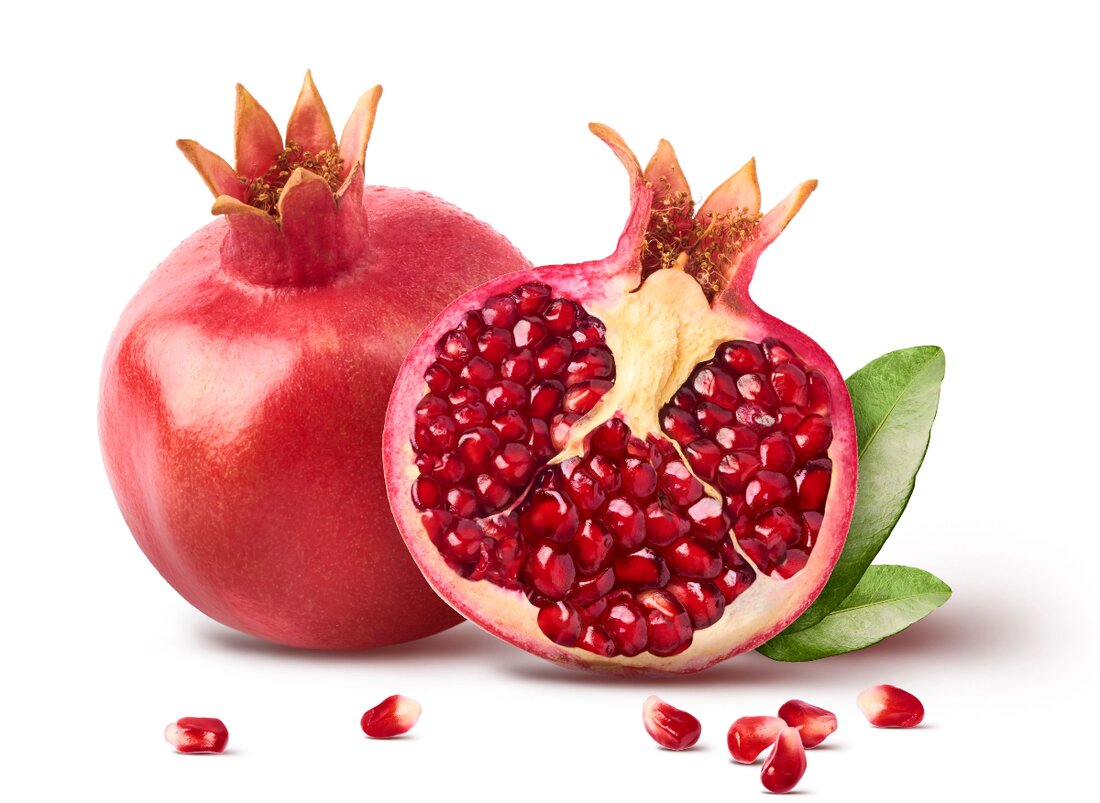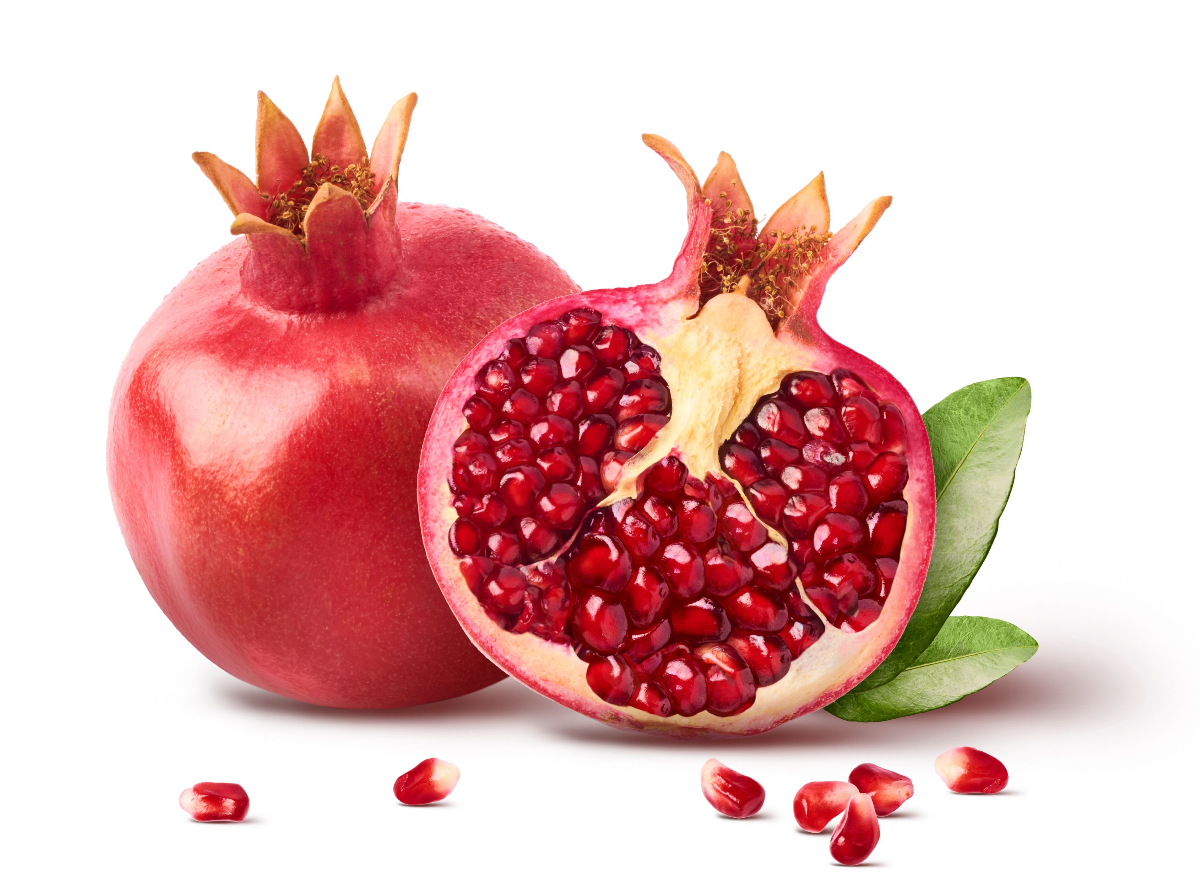How does consuming pomegranate extract affect satiety parameters?
A recent article published in Food found that taking pomegranate extract and juice can reduce appetite as measured by satiety parameters. Learning: Effect of pomegranate extract consumption on satiety parameters in healthy volunteers: A preliminary randomized trial. Image credit: Agave Studio/Shutterstock Background Obesity is a multifactorial disease, and its associated comorbidities cause a significant public health burden worldwide. The prevalence of obesity is increasing, with consumption of high calorie foods being one of the modifiable factors. Therefore, it is essential to gain an understanding of the nature of satiety. The ability to control appetite has already been...

How does consuming pomegranate extract affect satiety parameters?
A recently published article in Groceries found that taking pomegranate extract and juice can reduce appetite as measured by satiety parameters.

Lernen: Wirkung des Verzehrs von Granatapfelextrakt auf Sättigungsparameter bei gesunden Freiwilligen: Eine vorläufige randomisierte Studie. Bildnachweis: Agave Studio/Shutterstock
background
Obesity is a multifactorial disease and its associated comorbidities cause a significant public health burden worldwide. The prevalence of obesity is increasing, with consumption of high calorie foods being one of the modifiable factors. Therefore, it is essential to gain an understanding of the nature of satiety.
The ability to control appetite has already been identified as crucial to the advancement of dietary treatment of obesity. It is well known that appetite sensations play a key role in regulating energy intake. Given the difficulties patients face in accepting long-term changes in their dietary habits and the physical activity required to lose weight, it is essential to seek new, complementary strategies to combat obesity.
Dietary supplements may provide an alternative method for weight loss because they help reduce cardiometabolic risk factors associated with obesity without changing diet. Nutraceuticals or dietary supplements have also proven to be effective tools in the treatment of pathological conditions such as obesity as they contain high levels of bioactive compounds that confer health benefits.
The health benefits of taking pomegranate juice are attributed to the high content of antioxidant polyphenols, especially in the components tannins, anthocyanins and ellagic acid derivatives.
Pomegranate juice and extracts have also been found to reduce food intake and body weight in animals. However, research on the benefits of pomegranate juice is still in its infancy.
A new study
A new study examined the effects of pomegranate juice on satiety parameters in healthy individuals to investigate the role of pomegranate extract in promoting satiety and curbing food intake.
The current work involved a small exploratory study conducted to evaluate the effects of pomegranate extract (PE) on blood pressure, stress hormone levels, insulin resistance, and quality of life in healthy volunteers. This randomized, placebo-controlled study evaluated the above parameters on a normal day (morning and midday) to examine the effects of taking pomegranate extract.
Here, 28 subjects were randomly assigned to a three-week priming supplement with a pomegranate extract formulation (PE) or a placebo. Both groups were demographically the same - in terms of age and body mass index (BMI).
During the third week, participants consumed PE juice for breakfast and lunch. They were assessed for satiety parameters using visual analog scales (VAS) recorded to assess overall hunger and acceptability and palatability of both the juices and test meals.
Results
No side effects or adverse events were reported by either group during the screening assessment. The group that took PE capsules and drank PE juice showed lower levels of hunger and desire to eat and higher levels of satisfaction and fullness compared to the placebo group (control group).
A statistically significant difference in VAS total meal quality scores was observed between study groups. Subjects treated with PE priming performed better than those treated with placebo. Compared to the placebo group, the PE priming group consumed significantly less food.
Overall, the results showed that subjects in the PE group who drank PE juice were generally happier than those in the placebo group. After administering PE capsules along with PE juice with meals, participants were less hungry than after taking placebo capsules.
The results of paired t-tests (Mann-Whitney U test) for VAS appetite measures showed significant differences between groups and a clear trend toward lower hunger and cravings, higher levels of fullness and satisfaction, and higher satiety in participants consuming PN with PN juice.
The fact that these trends were only observed in the group that consumed PE and PE juice highlights the need for further research with a larger sample size.
Conclusion
The results show that PE and PE juice can modulate satiety indicators. However, the limitations of the survey methodology, the limited number of participants and the quality of the data generated do not allow any reliable conclusions to be drawn.
Nevertheless, the results appear promising. An evaluation of the effect of PE extract and PE juice on satiety parameters is needed, and further studies with larger numbers of volunteers are warranted.
Reference:
- Stockton, A., & Al-Dujaili, E. (2022). Wirkung des Verzehrs von Granatapfelextrakt auf Sättigungsparameter bei gesunden Freiwilligen: Eine vorläufige randomisierte Studie. Lebensmittel. doi: 10.3390/foods11172639 https://www.mdpi.com/2304-8158/11/17/2639
.

 Suche
Suche
 Mein Konto
Mein Konto
